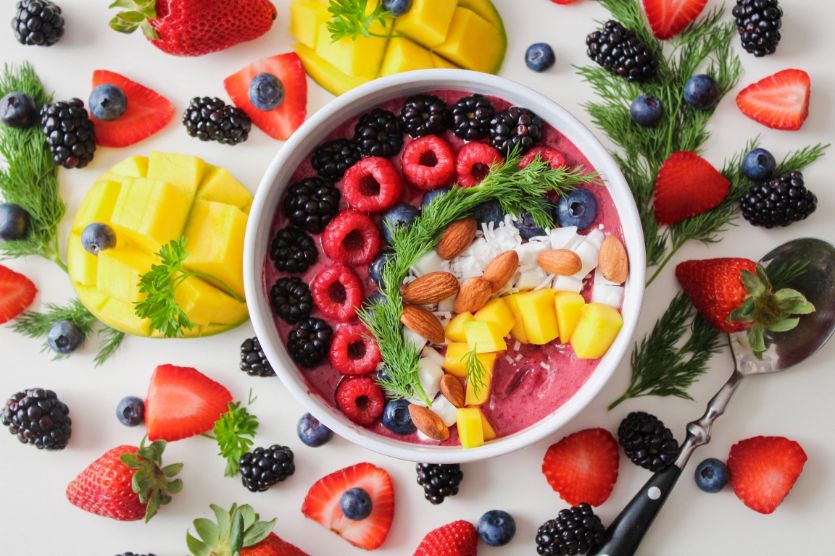Chronic joint inflammation caused by arthritis is a common medical condition. Depending on the kind, it hurts joints, breaks bones, and damages other body parts. Medical science has yet to discover a treatment for arthritis, but there are many effective options available.
The most important of these is avoiding foods that make joint pain worse and consuming foods that make it less severe. But occasionally, changing your diet can help you live pain-free. We’ve therefore listed some of the top foods to stay away from if you have arthritis.
Foods To Avoid
Added Sugars
No matter what, but especially if you have arthritis, you should limit your sugar intake. In addition to many other foods, including less obvious ones like barbecue sauce, added sugars can be found in candy, soda, ice cream, and many other foods.
Sugary drinks like soda may also significantly raise your risk of developing arthritis.
For instance, in a study of 1,209 adults aged 20–30, those who drank beverages with 5 or more servings of fructose per week or more had a 3 times higher risk of developing arthritis than those who drank few to no such beverages.
In addition, a significant study involving nearly 200,000 women found a link between regular soda consumption and a higher risk of RA.
Processed And Red Meats
Inflammation may worsen the symptoms of arthritis, according to some research linking red and processed meat to it.
Inflammatory markers like interleukin-6 (IL-6), C-reactive protein (CRP), and homocysteine are present in high levels in diets high in processed and red meats, for instance.
Red meat frequently made RA symptoms worse, according to the study of 217 people with the disease that was mentioned above. High consumption of red meat may also increase the risk of developing inflammatory arthritis, according to a study involving 25,630 people.
On the other hand, studies have shown that plant-based diets that don’t include red meat can reduce the symptoms of arthritis.

Gluten-containing Foods
Wheat, barley, rye, and triticale (a cross between wheat and rye) all contain a group of proteins known as gluten. Going gluten-free may help with the symptoms of arthritis, according to some research that links it to an increase in inflammation.
Furthermore, those who have celiac disease are more likely to develop RA. The prevalence of the celiac disease is also significantly higher in autoimmune disease patients than in the general population, such as those with autoimmune diseases like RA.
Notably, a previous, 1-year study of 66 RA patients discovered that a gluten-free, vegan diet significantly decreased disease activity and improved inflammation.
These results raise the possibility that a gluten-free diet alone can help people with arthritis, but more studies are required to confirm this.
Trans Fats
Trans fats should be avoided because they are very bad for your cardiovascular health and can cause or exacerbate inflammation. Most processed foods, including cookies, crackers, doughnuts, and fast food, contain trans fats. On labels, they are referred to as “partially hydrogenated vegetable oils.”
Dairy
Casein, a protein, is present in large amounts in dairy. This particular protein causes irritation near the joints as well as inflammation and pain in the joints. Some dairy products, like butter, have a high saturated fat content. Inflammation and joint pain may also result from this. Dairy products can be replaced with soy and almond milk, among others.
Eggs
Regular egg consumption can increase joint pain and swelling. Arachidonic acid is present in the yolks and aids in causing inflammation in the body. Eggs also contain saturated fat, which can cause joint pain. Give up the yolks and just use the egg whites if you can’t completely give up eggs.
Alcohol
Anyone with inflammatory arthritis should limit or avoid alcohol because it may make their symptoms worse.
Alcohol consumption was linked to increased spinal structural damage in a study of 278 patients with axial spondyloarthritis, inflammatory arthritis that primarily affects the spinal cord and sacroiliac (SI) joints.
Alcohol consumption may also worsen and increase the frequency of gout attacks, according to studies.
A higher risk of osteoarthritis is also linked to chronic alcohol use, though not all studies have found a strong connection.
Certain Vegetable Oils
Diets high in omega-6 fats and low in omega-3 fats may worsen symptoms of osteoarthritis and rheumatoid arthritis (23Trusted Source, 24Trusted Source).
For good health, these fats are required. However, the imbalanced ratio of omega-6s to omega-3s in most Western diets may increase inflammation (25Trusted Source).
Reducing your intake of foods high in omega-6 fats, such as vegetable oils, while increasing your intake of omega-3-rich foods like fatty fish may improve arthritis symptoms (24Trusted Source).
Foods High In Salt
For those who have arthritis, reducing salt intake may be a wise move. Shrimp, canned soup, pizza, cheeses, processed meats, and many other processed foods are examples of foods high in salt.
A mouse study found that mice fed a high salt diet had more severe arthritis than mice fed a diet with normal salt levels.
Foods High In Ages
Molecules called advanced glycation end products (AGEs) are produced when proteins or fats react with sugars. They naturally exist in uncooked animal foods and are formed through certain cooking methods (32Trusted Source).
Among the richest food sources of AGEs are animal products that are high in protein and fat and are fried, roasted, grilled, seared, or broiled. These include bacon, pan-fried or grilled steak, roasted or fried chicken, and broiled hot dogs (33Trusted Source).
French fries, American cheese, margarine, and mayonnaise are also rich in AGEs (33Trusted Source).
It’s possible for oxidative stress and inflammation to develop when your body’s AGE levels rise significantly. In people with arthritis, oxidative stress and AGE formation are linked to disease progression.

Foods To Pursue
Nuts
For vegetarians, nuts are an excellent source of protein. They also include alpha-linolenic acid, which strengthens the immune system, magnesium, zinc, and vitamin E. They are also an easy way to get the protein you need to keep your digestive tract healthy, and they are very filling.
Garlic & Onions
Loaded with immune-boosting properties, garlic and onions are the superhero duo of the produce section. Studies have shown that those who eat foods in the allium family, such as garlic and onions, exhibit fewer signs of osteoarthritis and joint pain.
Beans
Another great source of protein and fiber, beans are an excellent way to replace many filer foods that worsen joint pain and the conditions associated with it. Beans are rich in folic acid, zinc, iron, and potassium— all of which are known to have important immune-boosting properties.
Citrus Fruit
Oranges, grapefruits, lemons, and limes are sweet, energizing, and delicious fruits that are also effective allies in the battle against joint pain. Not only are they rich in life-saving vitamin C, but for those who enjoy sweets, they are also a great replacement.
Green Tea
Known for its many health-promoting benefits, green tea can also help turn the tide against arthritic conditions. Loaded with powerful antioxidants and polyphenols, green tea reduces inflammation and slows the process of cartilage deterioration.
The Bottom Line
A healthy diet and way of life may help with arthritis symptoms. According to research, you should stay away from foods and drinks like red meat, fried foods, and those with a lot of added sugars, as well as those that are highly processed. When you need some advice, you can always turn to specialists in integrative medicine and nutrition.
Read More:



